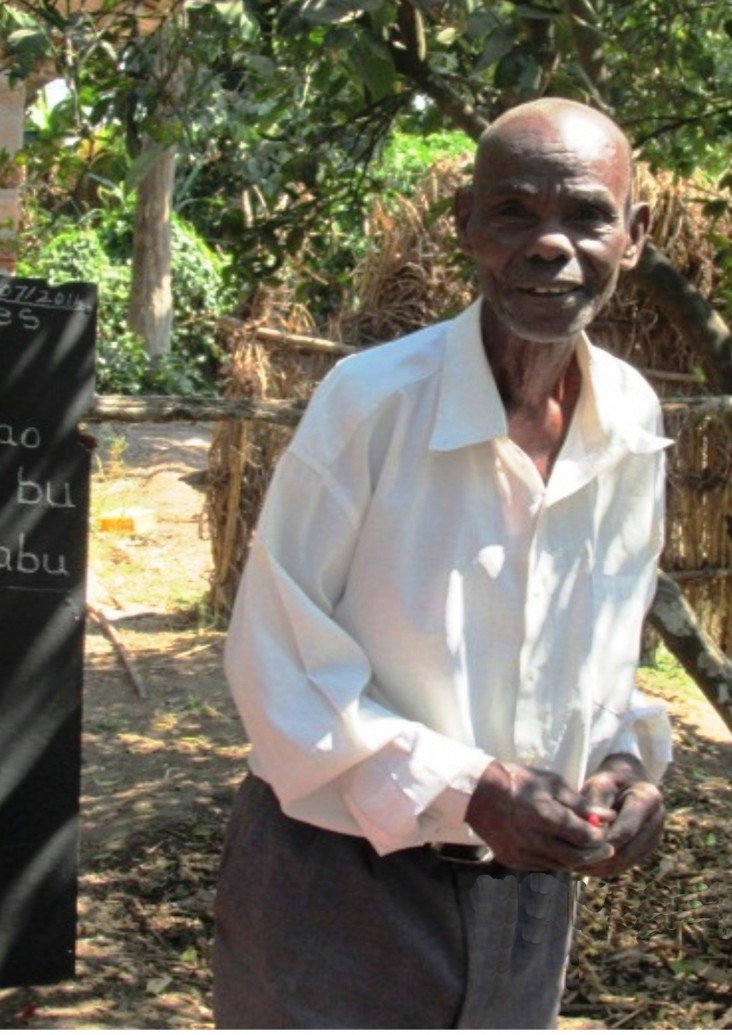
June 2015—When an 87-year-old retired school teacher in Zambia learned that children in his village were having difficulty learning to read and write, he took action, proving that “once a teacher, always a teacher.”
Mwamba Nsebula is also a village headman in the Mporokoso district in Northern province, whose passion for helping students has only grown throughout his lifetime. In 1987, Nsebula began helping students in his village pay for their school tuition and, in 2012, he established a community literacy nsaka, or meeting place, which has now become a vibrant community literacy center.
The nsaka is located under four orange trees in Nsebula's orchard in Chishamwamba village. There, the headman offers remedial literacy classes to students in grades 1 through 3 who were identified by school administrators as needing extra support. Using makeshift benches and a homemade blackboard, Nsebula has helped hundreds of pupils overcome barriers to become fluent readers.
During the day, his students attend regular classes. Later in the afternoon, those in need attend extra reading and writing lessons at the headman’s homestead.
In 2012, the USAID-funded Read to Succeed project began promoting a phonics-based approach to 64 government primary schools in Mporokoso to improve early grade reading. In addition to introducing a new reading instruction technique to teachers, the project initiated a school-community partnership to increase parental and community engagement to improve student performance.
Through this partnership, community members started bringing used books, newspapers and other print materials to school for children to read. Others helped to prepare and organize reading spaces in schools—some in classrooms and some under trees. Community members also offered to write stories, which then became the students’ reading materials.
The project provided Nsebula with instructional materials to apply the new reading techniques and to align his remedial classes with the school early grade reading weekly schedule. Nsebula supplements the learning materials with locally available items; for example, he makes slates for students from old file boxes coated with blackboard paint.
The district education and standards officer from the Ministry of Education, Science, Vocational Training and Early Education, upon visiting Nsebula’s center, asked him to spread the concept to more village members.
“As a retired education officer and headman in my chiefdom, I am pleased to have this opportunity to help children to read and write,” said Nsebula. “I will encourage other members of the community in this village to contribute. Our children and grandchildren are the leaders of the nation tomorrow.”
While access to education has improved in Zambia, student performance remains low. The Read to Succeed project works with Zambia’s Ministry of Education and other USAID education projects to enhance the quality of education as measured by early grade reading outcomes. To date, over 620,000 students have benefited from the five-year program, which began in March 2012. With funding from the U.S. President’s Emergency Plan for AIDS Relief, the project also works to reduce the impact of HIV/AIDS on the education system, including prevention measures for teachers and students.
LINKS
Follow @USAIDZambia, on Facebook, on Flickr, on YouTube







Comment
Make a general inquiry or suggest an improvement.